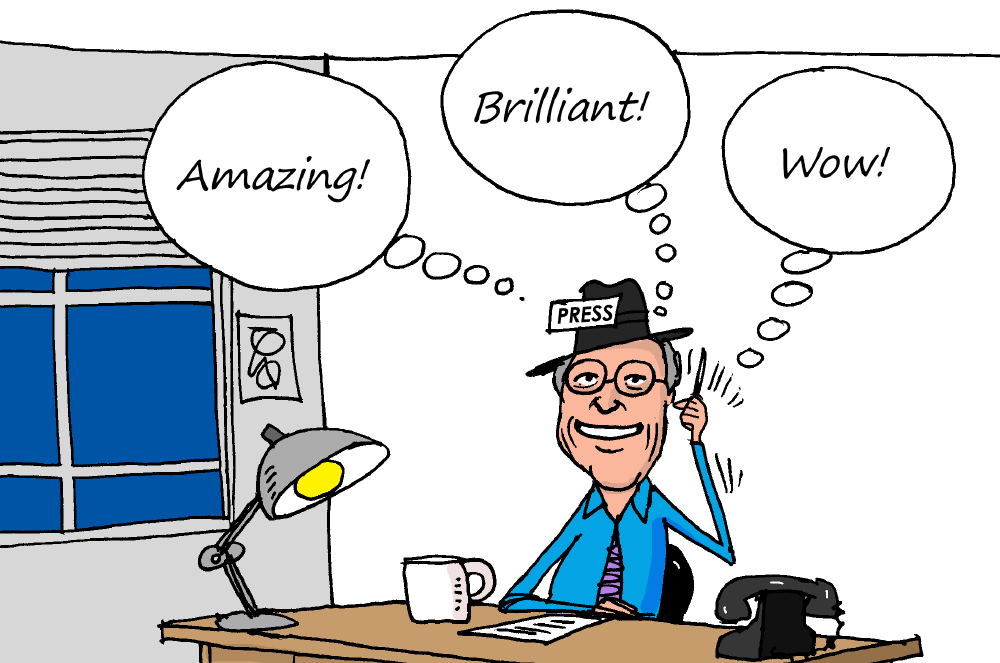
Stop me if you’ve heard these before:
Don’t count your chickens before they hatch.
Actions speak louder than words.
Don’t bite the hand that feeds you.
Rome wasn’t built in a day.
They might sound a little corny and clichéd at times, but I love proverbs. Usually bearing some kind of life lesson, they are short sayings that reflect big truths. Truths that are, for the most part, timeless.
Many of these are so deeply ingrained in our culture they’ve become part of our everyday lexicon. They can be a potent communication tool when you want to make a point, whether in a speech or a conversation.
In the 18th century—when nuggets of moral or practical wisdom were especially popular—Benjamin Franklin published Poor Richard’s Almanack. The compendium included what have become some classic adages: haste makes waste, lost time is never found again, and a penny saved is two pence clear (now known as the snappier a penny saved is a penny earned).
Punchy but Perplexing
Most proverbs are easy to decipher, but some I’ve heard my whole life and still don’t know what they mean.
Don’t look a gift horse in the mouth. What is a gift horse and why would we be looking in its mouth?
Don’t throw the baby out with the bathwater. Who throws out bathwater? And, more to the point: Who throws out a baby?!!
He who hesitates is lost. Really? What if you’re just pausing for directions? Not lost, just confirming the GPS is correct.
The pen is mightier than the sword. Is it, though?
A couple of years ago, a colleague and I were discussing whether to make a particular grammatical change to a sentence, and she said, “It’s not a hill I would die on.” I’d never heard that one before! It basically means “this isn’t that important.” But with more poetic phrasing. Suddenly a stance on the serial comma evoked hills and battles and generals making last stands.
Proverbs can be a potent communication tool when you want to make a point, whether in a speech or a conversation.
Proverbs are fun because of their figurative meaning. The literal statement is symbolic of something larger. For example, maybe you mow your lawn better than your next-door neighbor, but if he’s got a boat in his driveway, you might find the grass looking a lot greener on his side of the fence.
Likewise, when you say every cloud has a silver lining, you’re probably not studying meteorological signs, but rather, pondering how to stay positive amid disappointment.
Proverbs tend to exist alongside their not-too-distant cousin, the aphorism. The two are similarly constructed, but the former are considered more reflective of general folk wisdom, while the latter are typically attributed to a single individual (William Shakespeare, for example).
Gretchen Rubin, a popular author, podcaster, and blogger, is such a fan of aphorisms that she wrote a couple hundred of them to distill life lessons in her latest book, Secrets of Adulthood: Simple Truths for Our Complex Lives. Aphorisms, she notes, stretch your self-awareness.
“Because we must decide whether we agree or disagree, aphorisms provoke our reflection,” she wrote in a blog post.
The Bard’s Big Message
Shakespeare had a genius for pithy sayings with sharp insights. Many of the playwright’s poetic phrases have now become commonplace.
All the world’s a stage. To thine own self be true. Brevity is the soul of wit. (A good one for any public speaker to remember.)
Ben Franklin, William Shakespeare, and … Yogi Berra? Yes indeed. Berra was a star baseball player for the New York Yankees in the 1950s, and as a talker, he was in a category of his own. Berra had a gift for saying things that made no sense, but, well, kind of did.
A few of Yogi’s greatest hits:
It’s déjà vu all over again. The future ain’t what it used to be. Baseball is 90% mental; the other half is physical.
Perhaps best to end this column with the sagest of Yogi’s sayings.
When you come to a fork in the road, take it.
Paul Sterman is senior editor, executive and editorial content, for Toastmasters International. Reach him at psterman@toastmasters.org.







